Frontpage News (3259)
 The Registrar, Pharmacists Council of Nigeria, Elijah Mohammed, said on Tuesday a new law that would checkmate quack pharmacists would commence in April this year.
The Registrar, Pharmacists Council of Nigeria, Elijah Mohammed, said on Tuesday a new law that would checkmate quack pharmacists would commence in April this year.
Mohammed disclosed this at the 9th oath-taking/induction ceremony of pharmacy graduands of the Dora Akunyili College of Pharmacy, Igbinedion University, Okada, Edo State. He said the government had identified the menace of the quacks and was making everything possible to flush them out.
 The World Health Organisation said on Monday that the German government had expressed satisfaction with the progress of polio eradication in Nigeria.
The World Health Organisation said on Monday that the German government had expressed satisfaction with the progress of polio eradication in Nigeria.
The Executive Director of the National Primary Health Care Development Agency, Dr Faisal Shuaib, had on August 21, 2019 said Nigeria had begun the process of documentation towards the final stages of being declared a polio-free society. He said by June 2020, the country could achieve the status.
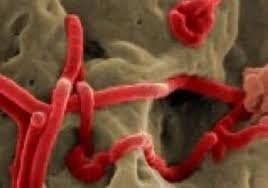 The Nigeria Medical Association has called on the Federal Government to treat the deadly coronavirus like the Ebola virus to stop its transmission to Nigeria from China and other countries where it has reached.
The Nigeria Medical Association has called on the Federal Government to treat the deadly coronavirus like the Ebola virus to stop its transmission to Nigeria from China and other countries where it has reached.
The call came on the backdrop of the fact that a sizeable number of Nigerians involved in business transactions between Nigeria and China, as well as other Asian countries, fear that a traveller infected with the virus could transmit it to Nigeria from any of the affected countries in Asia. The earliest cases of Coronavirus were reported a few weeks ago in Wuhan, China and it was believed that they were transmitted from animals to humans.
Brain Drain: Beyond minimum wage, give doctors welfare package
Site Admin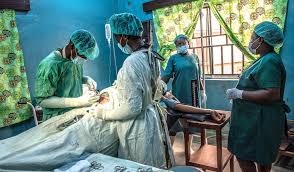 As Nigeria battles with brain drain in the health sector with a ratio of one doctor to 6,000 patients, medical doctors have urged the government to look beyond the minimum wage and come up with a proper welfare package to end the migration of health professionals abroad.
As Nigeria battles with brain drain in the health sector with a ratio of one doctor to 6,000 patients, medical doctors have urged the government to look beyond the minimum wage and come up with a proper welfare package to end the migration of health professionals abroad.
Speaking at the Good Health Weekly on Vanguard Live the experts maintained that while the minimum wage is good, it is not the ultimate now that an estimated eight out of every 10 doctors are contemplating leaving the country for a greener pasture and about four leave every
 The Federal Government says it has developed pneumonia control strategy and implementation plan as part of renewed efforts to ensure the survival and well-being of Nigerian children. Minister of Health, Prof Osagie Ehanire disclosed this at the opening of the 51st Annual General Meeting and Scientific Conference of the Paediatric Association of Nigeria (PAN) in Kano on Wednesday.
The Federal Government says it has developed pneumonia control strategy and implementation plan as part of renewed efforts to ensure the survival and well-being of Nigerian children. Minister of Health, Prof Osagie Ehanire disclosed this at the opening of the 51st Annual General Meeting and Scientific Conference of the Paediatric Association of Nigeria (PAN) in Kano on Wednesday.
The News Agency of Nigeria (NAN) reports that the conference was organised by PAN in collaboration with the United Nations Children’s Fund (UNICEF). The minister, who was represented by the Chief Medical Director (CMD), Aminu Kano Teaching Hospital (AKTH), Prof Abdurrahman Abba-Sheshe, said the ministry had concluded all necessary arrangements for the launching of the scheme.
 The Nigeria Governors’ Forum (NGF) says it is working with the Federal Ministry of Health and other agencies to intensify efforts to control Lassa Fever in the country, as well prevent any case of the Coronavirus in the country.
The Nigeria Governors’ Forum (NGF) says it is working with the Federal Ministry of Health and other agencies to intensify efforts to control Lassa Fever in the country, as well prevent any case of the Coronavirus in the country.
NGF Chairman and Gov. Kayode Fayemi of Ekiti, disclosed this while briefing newsmen at the end of the forum’s meeting held on Wednesday night in Abuja. Fayemi said that the forum at the meeting received updates on Lassa fever epidemic and the “coronavirus”, killing people in Chinise and it spreading to other parts of the world.
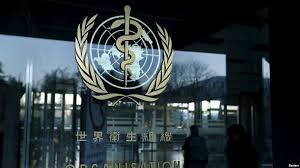 Following the announcement by China’s national health body that the new coronavirus can be transmitted from person to person, the World Health Organisation (WHO) will hold a meeting on Wednesday to decide if it (ailment) should be declared a global health emergency.
Following the announcement by China’s national health body that the new coronavirus can be transmitted from person to person, the World Health Organisation (WHO) will hold a meeting on Wednesday to decide if it (ailment) should be declared a global health emergency.
WHO, in a message via its Twitter account on Monday said the agency’s Director-General, Tedros Ghebreyesus, will “convene an Emergency Committee on the novel #coronavirus (2019-nCoV) under the International Health Regulations”,
Coronavirus: Bill & Melinda Gates Foundation gives $10m to China, Africa
Site Admin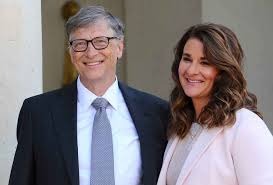 The Bill & Melinda Gates Foundation has committed $10 million in emergency funds and technical support to help frontline responders in China and Africa accelerate their efforts to contain the global spread of novel Coronavirus.
The Bill & Melinda Gates Foundation has committed $10 million in emergency funds and technical support to help frontline responders in China and Africa accelerate their efforts to contain the global spread of novel Coronavirus.
The foundation in a statement released on its website on Monday said that it was committing $5 million to the coronavirus response in China, and was already working with a range of Chinese public and private sector partners to accelerate national and international cooperation. It said that international cooperation would be in the areas of critical need, including efforts to identify and confirm cases,
Lassa fever: Seven doctors, five nurses quarantined at Adamawa hospital
Site Admin Seven doctors and five nurses have been quarantined at the Federal Medical Centre, Yola, Adamawa state, following their contact with a patient diagnosed with Lassa fever. A source at the hospital told TheCable on Monday that a pregnant woman who lost her fetus was the primary contact.
Seven doctors and five nurses have been quarantined at the Federal Medical Centre, Yola, Adamawa state, following their contact with a patient diagnosed with Lassa fever. A source at the hospital told TheCable on Monday that a pregnant woman who lost her fetus was the primary contact.
She said the woman was admitted at the labour ward, where the fetus was evacuated on Friday. “After the evacuation, it was observed that the woman had fever and was bleeding.
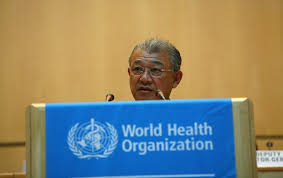 World Health Organisation (WHO) Goodwill Ambassador, Yohei Sasakawa, says early detection and treatment of leprosy will prevent patients from disabilities. Sasakawa, WHO Goodwill Ambassador for Leprosy Elimination, said this in his message posted on WHO website to mark the World Leprosy Day.
World Health Organisation (WHO) Goodwill Ambassador, Yohei Sasakawa, says early detection and treatment of leprosy will prevent patients from disabilities. Sasakawa, WHO Goodwill Ambassador for Leprosy Elimination, said this in his message posted on WHO website to mark the World Leprosy Day.
World Leprosy Day is observed internationally every year on the last Sunday of January to increase the public awareness of the Leprosy or Hansen’s Disease. According to Sasakawa, through the efforts of many people, leprosy is an easily curable disease and the drugs are distributed free of charge.
More...
Infectious Diseases: Lagos Biosafety Lab Commences Operations
Site Admin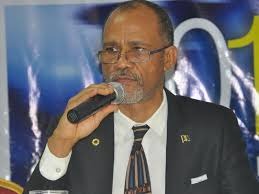 In a bid to tackle future disease outbreaks in the country, the Lagos State biosafety laboratory has began operations, the state Commissioner for Health, Prof. Akin Abayomi, has said. Abayomi, in a statement issued on Monday, said the facility has the capacity to process, identify and store samples of infectious diseases such as Ebola, Lassa fever and Coronavirus, among others.
In a bid to tackle future disease outbreaks in the country, the Lagos State biosafety laboratory has began operations, the state Commissioner for Health, Prof. Akin Abayomi, has said. Abayomi, in a statement issued on Monday, said the facility has the capacity to process, identify and store samples of infectious diseases such as Ebola, Lassa fever and Coronavirus, among others.
Abayomi said that the laboratory was built by the state government with support from the Canadian government to ensure effective management of infectious diseases for improvement of public health.“With this facility, which is the highest and most functional biosafety, biobanking laboratory in West Africa,
‘Remove bottlenecks, release basic health care provision funds to state’
Site Admin For the Health sector in Nigeria to experience that big shift and the much needed revolution, it is expedient for the federal Government through the federal ministry of health to immediately remove all bottle necks and release Basic health Care provision Funds to States to boast their health system as contained in 2014 Health act.
For the Health sector in Nigeria to experience that big shift and the much needed revolution, it is expedient for the federal Government through the federal ministry of health to immediately remove all bottle necks and release Basic health Care provision Funds to States to boast their health system as contained in 2014 Health act.
While some states have had the funds released to their CBN account only 2 states in Nigeria have accessed the funds, One year after it was launched by President Buhari. Cross River State which is one of the 35 states held by the several bottle necks has appealed to President Buhari to help facilitate the release of the basic health care provision
 The Federal Government on Tuesday said there was high-level inter-ministerial consultation towards setting up a multisectoral committee to scale up surveillance and vigilance to detect suspicious cases of coronavirus and ensure containing it at all points.
The Federal Government on Tuesday said there was high-level inter-ministerial consultation towards setting up a multisectoral committee to scale up surveillance and vigilance to detect suspicious cases of coronavirus and ensure containing it at all points.
 The World Health Organisation (WHO) Director-General, Tedros Gbebreyesus, will be meeting with the Chinese government and health experts over the outbreak of coronavirus on Tuesday.
The World Health Organisation (WHO) Director-General, Tedros Gbebreyesus, will be meeting with the Chinese government and health experts over the outbreak of coronavirus on Tuesday.
Mr Gbebreyesus, on his Twitter handle @Dr_Tedros on Monday, said he was on his way to Beijing to meet with the government and health experts supporting the coronavirus response in the country. “My WHO colleagues and I would like to understand the latest development and strengthen our partnership in providing further protection against the outbreak,” he tweeted.






